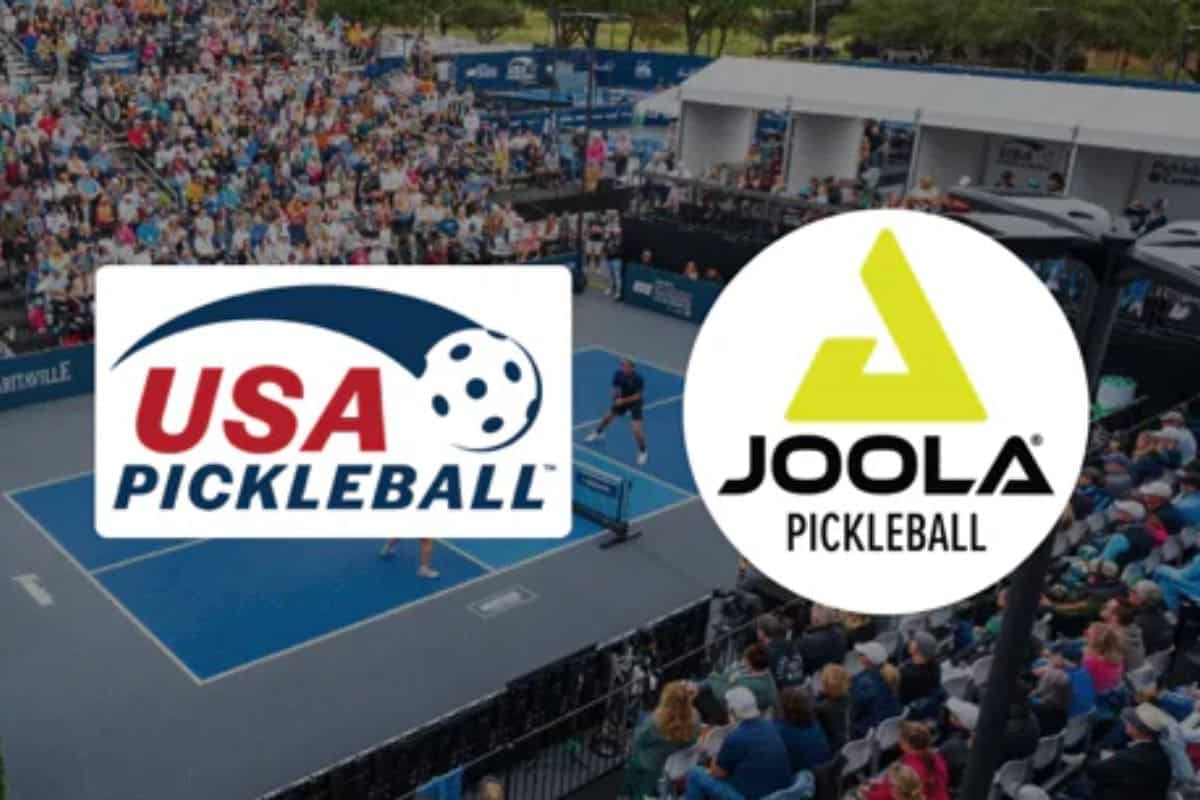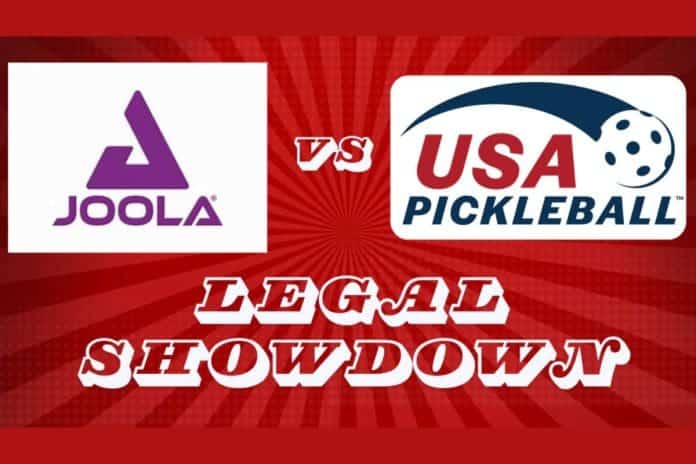JOOLA vs USA Pickleball: The ongoing legal dispute between Joola and the USA Pickleball Association (USAP) has captured the attention of the pickleball community and beyond. The stakes are high, involving claims of administrative errors, allegations of unfair competition, and significant legal expenses. At the center of this controversy is USAP’s recent motion to dismiss Joola’s lawsuit, a crucial move that could determine the trajectory of the case.
Overview of the USAP Paddle Approval Process
As the national governing body for pickleball in the United States, USAP plays a crucial role in setting and enforcing equipment standards for sanctioned tournaments. Manufacturers seeking approval for their paddles must submit them to USAP for rigorous testing. This process ensures compliance with the stringent standards that maintain the sport’s integrity and fairness.
The Events Leading to the Lawsuit
The conflict began in November 2023, when Sport Squad, Inc., the parent company of Joola, submitted the wrong paddles to USAP for approval due to an internal administrative error. These paddles, which featured a thicker foam layer creating a trampoline effect, were used by professional players, resulting in public outcry. Despite knowing these paddles were unapproved, Sport Squad released them to the market in April 2024, falsely labeling them as “USA Pickleball Approved.”
In May 2024, Sport Squad attempted to correct their mistake by submitting the correct market versions of the paddles for approval. However, these versions were found non-compliant due to structural differences and violations of the updated surface roughness rule implemented in April 2024.
Legal Arguments for Dismissal
In its motion to dismiss, USAP presents several key arguments:
- Breach of Implied Contract: USAP contends that Sport Squad’s complaint does not establish any breach of understanding by USAP.
- Promissory Estoppel: USAP argues that Sport Squad’s claim fails due to a lack of reasonable reliance and their own negligence in submitting the wrong paddles.
- Negligent Misrepresentation and Fraud: USAP asserts that it owes no tort duty to Sport Squad and did not make any fraudulent misrepresentation to induce Sport Squad to manufacture the incorrect paddles.
- Tortious Interference: USAP defends its actions as legitimate business decisions aimed at maintaining fair competition, not fraudulent or criminal acts.
USAP seeks the dismissal of the lawsuit with prejudice, arguing that Sport Squad’s claims are unfounded and result from their own administrative errors and non-compliance with established equipment standards.
The Motion to Dismiss: Legal Proceedings Timeline
The motion to dismiss, drafted by the well-respected law firm Bryan Cave, underscores the significant legal expenses USAP is willing to incur, indicating that a settlement may not be imminent. Joola’s opposition to the motion is due in August, with a hearing likely set for September. Discovery will proceed during this period, with a ruling expected in September or October. This ruling will address only the motion to dismiss, not the overall lawsuit.
Possible Outcomes
- Motion to Dismiss Granted: If the court grants USAP’s motion entirely, the lawsuit will be dismissed.
- Motion to Dismiss Denied: If the motion is denied, the lawsuit will continue.
- Partial Grant: The court may grant the motion in part, leading Joola to either dismiss those claims or file an amended complaint.
Legal Community Discussion
The legal community has been abuzz with discussions about the efficiency of federal district courts. The case, being heard in Maryland, is expected to proceed relatively swiftly due to the jurisdiction’s reputation for efficient handling of such motions. Todd Boss has hosted both Joola’s complaint and USAP’s motion to dismiss on a pickleball-related website, providing a valuable resource for those tracking the case.
Clarifications and Reader Interaction
A ruling on the motion to dismiss will not determine the final outcome of the lawsuit but will decide if the lawsuit can proceed. Federal courts typically handle these motions quickly, although some jurisdictions may experience delays.
In a related clarification, Jason Aspes, the president of UPA-A, addressed confusion over the UPA’s $100k paddle approval fee, explaining the organization’s regulatory intentions for professional play and emphasizing fairness and standards.
The pickleball community remains engaged and invested in the legal proceedings, with many readers expressing interest in further analysis of USAP’s motion to dismiss. An ELI5 (Explain Like I’m 5) summary clarified that USAP is arguing that Joola’s complaint lacks legal merit even if all allegations are true, providing a simplified understanding of the complex legal arguments at play.
The motion to dismiss filed by USAP is a critical development in the ongoing legal battle with Joola. As both parties prepare for the upcoming hearing, the pickleball community watches closely, awaiting a decision that could have significant implications for the sport’s regulatory landscape. The outcome of this legal clash will not only affect the parties involved but also set a precedent for how equipment standards and approval processes are enforced in the future.

News In Brief: JOOLA vs USA Pickleball
The legal dispute between Joola and the USA Pickleball Association (USAP) centers on claims of administrative errors, unfair competition, and significant legal costs. Joola’s lawsuit followed an internal error leading to the release of unapproved paddles labeled as ‘USA Pickleball Approved.’ USAP’s motion to dismiss argues that Joola’s claims lack merit due to their own mistakes and non-compliance with standards. Legal proceedings are set, with Joola’s opposition due in August and a hearing likely in September. The court’s ruling on the motion will determine if the lawsuit proceeds. This case’s outcome could impact future equipment standards and approval processes in pickleball, capturing significant attention within the community.
Also Read: Sussex YMCA Set to Open Dedicated Pickleball Center in Lafayette

